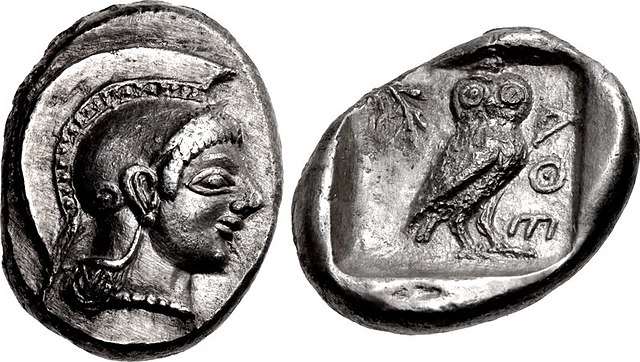The trittyes, singular trittys were part of the organizational structure that divided the population in ancient Attica, and is commonly thought to have been established by the reforms of Cleisthenes in 508 BC. The name trittys means "third", and is named such because there were three types of regions in each trittys. There were thirty trittyes and ten tribes named after local heroes in Attica. Trittyes were composed of one or more demes; demes were the basic unit of division in Attica, which were the smaller units of population that made up the trittyes..
Horos (boundary stone) of the trittyes of Pedion and Thria (both tribe of Oineis), in Piraeus, mid-5th century BC.
Cleisthenes, or Clisthenes, was an ancient Athenian lawgiver credited with reforming the constitution of ancient Athens and setting it on a democratic footing in 508 BC. For these accomplishments, historians refer to him as "the father of Athenian democracy". He was a member of the aristocratic Alcmaeonid clan. He was the younger son of Megacles and Agariste making him the maternal grandson of the tyrant Cleisthenes of Sicyon. He was also credited with increasing the power of the Athenian citizens' assembly and for reducing the power of the nobility over Athenian politics.
Modern bust of Cleisthenes, known as "the father of Athenian democracy", on view at the Ohio Statehouse, Columbus, Ohio
Coinage of Athens at the time of Cleisthenes. Effigy of Athena, with owl and ΑΘΕ, initials of "Athens". Circa 510-500/490 BC.
Most famously, Cleisthenes' ostracism was used against Themistocles in 472/471 BC. These were the particular ostraca used.
According to Herodotus, the Athenians made the gift of "Earth and Water to the Persians in 507 BC, at the time Cleisthenes was leading Athenian politics.





